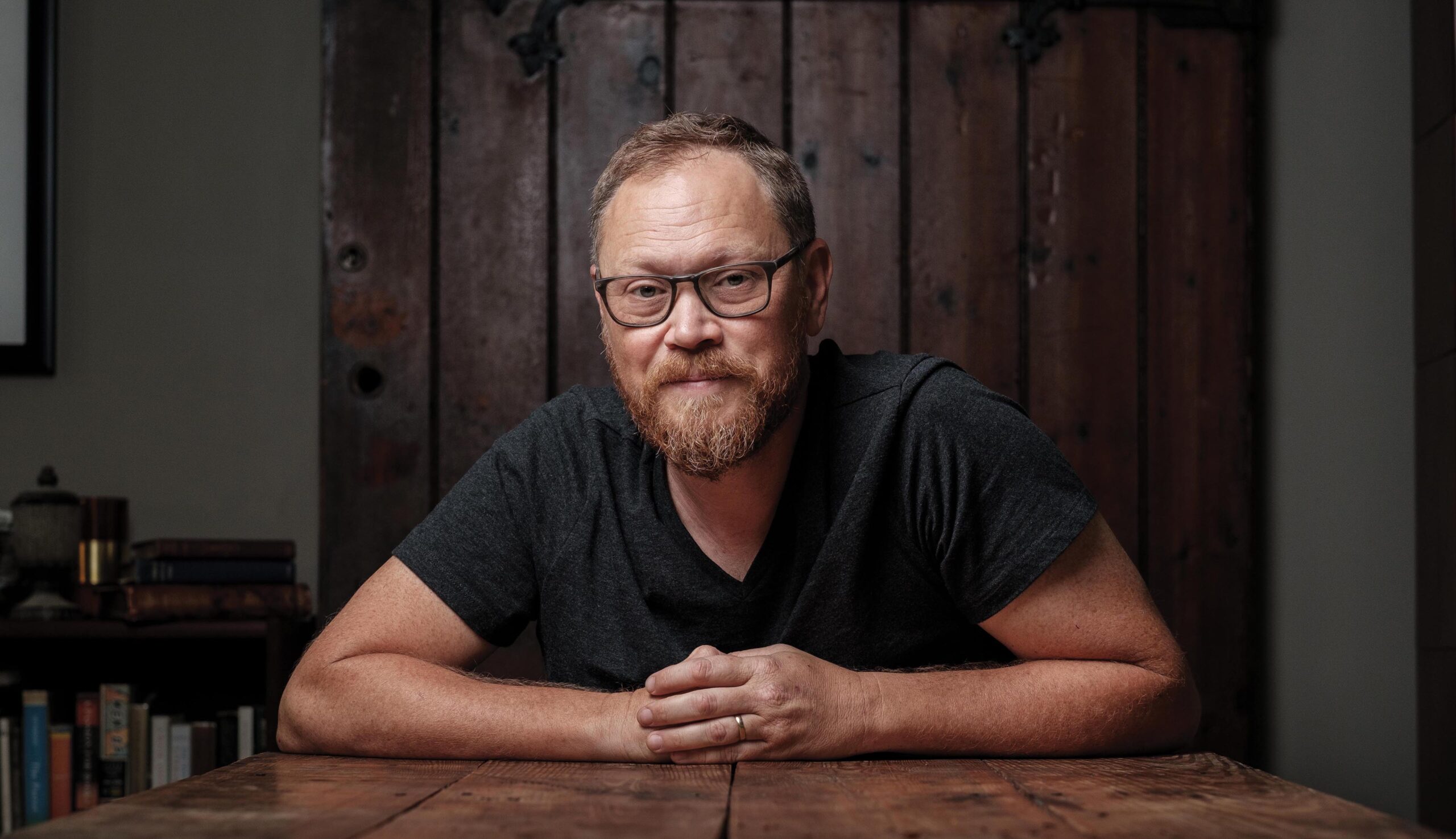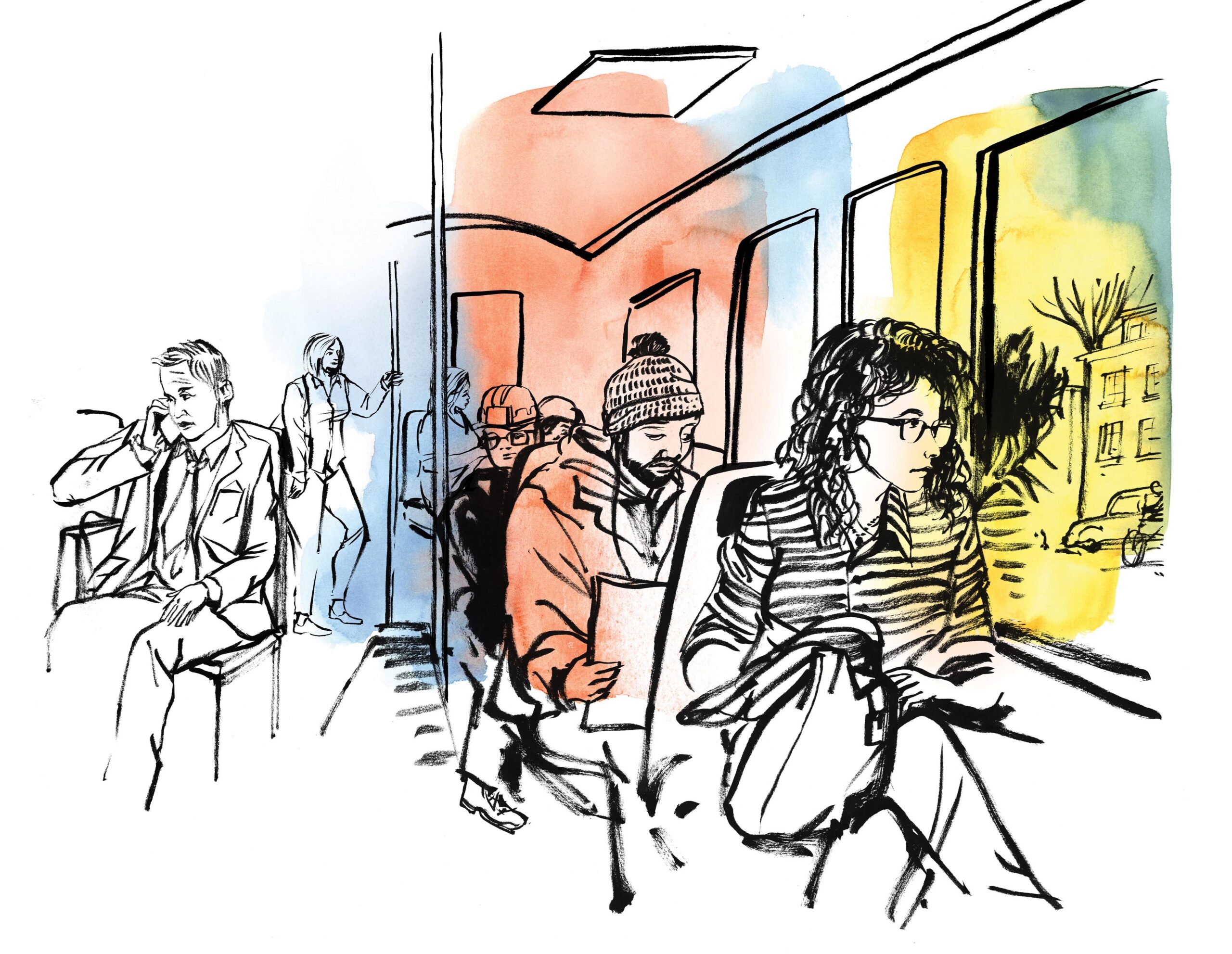Driving is one of those things that can bring out the worst in me. Recently, I arrived at an intersection ahead of the car to my left. Instead of yielding, the driver floored it and sped right in front of me. I was ticked off. I felt my heart beating in my chest, my blood pressure rising. How dare he do that to me? Who does he think he is? When I paused long enough to calm my heart down, and reflected on my overreaction, it painfully reminded me how lacking in a Christlike way my response had been to a discourteous driver. When I least expected it, my inner world was on display before me — and it wasn’t pretty.
One of my struggles in life is how often I am confronted by the inconvenient truth that my spiritual growth and character transformation has such a long way to go. My trek to greater Christlikeness and spiritual maturity often feels like one step forward and two steps backward. A steep climb for sure, often insufferably slow, and at times outright discouraging. No matter where we are in our spiritual journey, the true character change we long for can seem elusive and feel discouraging. Why is this the case? There are certainly several contributing factors to our lack of spiritual formation and transformation, but I believe a major culprit making change so elusive in our experience is a cultural distortion.
For centuries as a Western culture, we have overemphasized certain parts of our brains and underemphasized others. This has led to an impoverished “change framework,” emphasizing the brain’s rational world and deemphasizing the brain’s relational world. Many of us have been taught that if we individually just think right cognitively, if we possess the right biblical information, agree to the most sound doctrinal formulations, then we as individuals will experience transformation, take on the character of Christ, and grow to spiritual maturity. While having sound doctrine is essential, more is needed in our ongoing spiritual formation and transformation — both whole-brain and whole-life discipleship.
Spiritual growth, for both sides of the brain
Our greater understanding of neuroscience is providing additional insight as to how God designed our brains. This makes us more aware of — and attuned to — how our Western cultural distortion is hindering change in our lives. In 2009, Oxford Professor and Psychiatrist, Iain McGilchrist, wrote a watershed book entitled The Master and His Emissary: The Divided Brain and The Making Of The Western World.
It is a brilliant book, exposing our Western culture distortion with great implications for how we change. McGilchrist points out that the left and right hemispheres of our brains have differing insights, values, and priorities. Each has a distinct ‘take’ on the world — most strikingly, the right hemisphere sees itself as connected to the world, whereas the left hemisphere stands aloof from it. This left brain dominance of our Western culture has impoverished us in many ways. It affects our understanding not just of language and reason, music, and time, but also of all living things: our bodies, ourselves, and the world in which we live.
McGilchrist helps us see that for centuries in our Western culture the left hemispheres of our brains have been overemphasized and the right hemispheres have been underutilized with far reaching consequences. McGilchrist writes, “We need both (brain) hemispheres, but the left hemisphere has become so far dominant that we’re in danger of forgetting everything that makes us human.” While many aspects of McGilchrist’s thought deserve nuance based on recent brain studies, his central thesis seems to remain.
Whole-life discipleship and our minds
Neuroscience and interpersonal neurobiology is helping us understand how God designed us to flourish, providing insight into how we change and how our spiritual formation takes place. We now more fully understand that character formation is primarily a function of the right brain hemisphere. We also now know that the right hemisphere is the main brain function that allows for whole-person integration. Stop for a moment and think about this insight. No wonder in a left brain dominated culture our struggle to live integral lives and see character change is such a gargantuan challenge.
Our distorted Western cultural framework, with its overemphasis on the left brain hemisphere, has led an increasing number of contemporary Christian thinkers such as Curt Thompson and Jim Wilder to address so much of the church’s deficient half-brain faith. By half-brain faith they mean one that overemphasizes the left brain hemisphere at the expense of the right brain hemisphere. This also detracts from our efforts in whole-life discipleship. There is a great deal of complexity to how God designed the two hemispheres of our brains to work in harmony. We clearly have much more to learn about our brains. However, our greater understanding of our amazing brains points us to the Psalmist of old who declared in a microburst of praise to God that as his image bearers we are fearfully and wonderfully made.
If you are newer to the neuroscience conversation, it may be helpful to distinguish the two brain hemispheres this way: left brain — think logic, right brain — think relational. Both brain hemispheres are vitally important and we must employ both in how God designed them to function. Because of our Western cultural distortion overemphasizing the left hemisphere at the expense of the right hemisphere, an important correction is greatly needed. As a local church committed to biblical truth, spiritual formation, and transformation, we are prayerfully and intentionally making this crucial correction.
This full-brain insight may be new to many of us, a shift in our perspective, but it has been right in front of our eyes all along. Because of a cultural blind spot we may have missed it. Yet when we carefully examine the Holy Scriptures, we see that from Genesis to Revelation, the biblical writers embraced a full-brain faith, not one reduced or distorted by left brain dominance. The biblical writers understood that spiritual formation and transformation is both rational and relational. They understood that true knowing first knows someone, not just something.They saw the deceptive peril of thinking about God rather than thinking with God, of knowing about God, rather than knowing God intimately. They grasped fully that true change involves all of us, including all of our brain.
In Paul’s inspired letter to the Romans, chapter 12 plays a pivotal role in declaring the gospel is not just a rational belief we acknowledge, or a set of doctrines we affirm, but also a new identity, a deeply-lived relational reality we bodily experience within spiritual community. In Romans 12, the Apostle Paul urges us to embrace an embodied full-brained faith. He will advocate for our transformation by bringing our whole selves to God as we live out our new creation lives in Christ, our new group identity in the context of Spirit-empowered community.
Full-brain faith and work
While wise, individual rational choices are vitally important for our spiritual growth, they are not sufficient in themselves. Spiritual disciplines are also an essential part of our training in greater Christlikeness, but they are not only engaged as isolated individuals. The spiritual disciplines find their greatest transforming power when we experience secure attachment love with God and others lived out relationally in the context of a joy-filled spiritual community. Our loving relationship with God and others transform us. When it comes to our spiritual formation, we are not all on our own. We not only have each other as members of a faith community, we are supernaturally empowered for change. We have been given the Holy Spirit who transforms us into the likeness of Christ.
The Holy Spirit is not only at work within us as individuals, but also among us as a local church family. We are called to be a Spirit-filled community. We can change, but a greater emphasis on our right brain hemisphere is needed. Our transformation takes place primarily in the context of safe, joy-filled attachment-loving relationships, which is a primary function of the right brain hemisphere. If we are going to truly change, continuing to grow in our spiritual formation, and increasing Christlike character, we need a full-brain faith.





